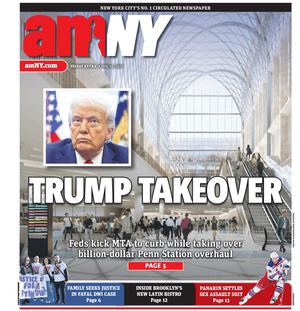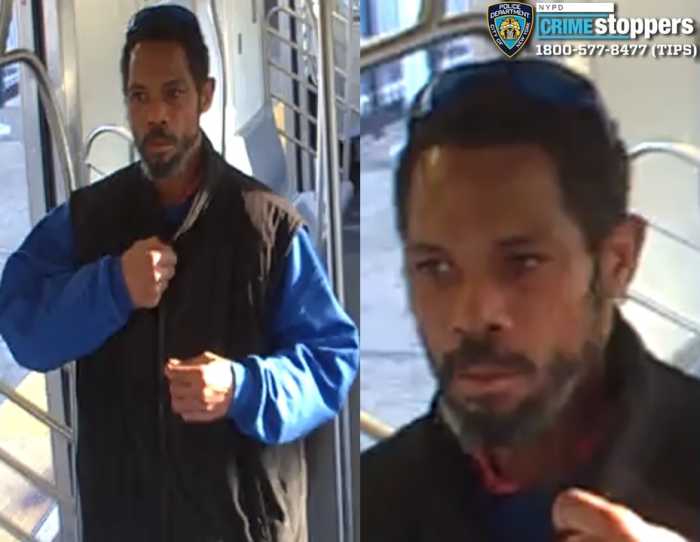
Industries such as restaurants, nail salons and car washes face a tipping point with Gov. Andrew Cuomo’s plan to examine changing the state’s rules for compensating their workers.
The state currently allows those and other businesses with tipped workers to pay a lower minimum wage, as long as these employees earn back the difference — or more — in tips. If an employee’s total earnings do not amount to the minimum wage, businesses must increase their pay enough to hit that threshold.
Cuomo indicated that in his State of the State address Wednesday he will discuss the prospect of eliminating this tipped credit system and compelling employers to pay the full minimum wage.
The governor has argued workers who rely on tips have a harder time coming forward with concerns, and consequently are more vulnerable to exploitation and harassment. But restaurant, car wash and nail salon trade groups said the tipped credit is critical to their survival.
The current system cuts into what workers could make if they pocketed the minimum wage plus gratuity, according to Paul Sonn, general counsel at the National Employment Law Project, which focuses on supporting low-wage workers.
“(The tipped credit) is driving the high poverty rates that you see among restaurant and car wash and food delivery workers, and these are jobs where much of the workforce are women, workers of color and immigrants,” Sonn said. “It doesn’t have to be this way.”
The U.S. Bureau of Labor Statistics estimated manicurists in the metro area earned a mean of $11.01 an hour with tips in May 2016. Hairdressers received a mean of $17.42 an hour with gratuity, which bureau statistics show was relatively high for metro area workers in industries that typically use a tipped credit.
Changes could most dramatically impact the restaurant and bar industry, which employs the greatest number of tipped workers in the metro area.
Carolina Miranda, a bartender at LaGuardia Airport, said her financial pressures would be eased somewhat if she earned the full minimum wage of $13 an hour, as opposed to the $8.50 an hour she currently pockets, in addition to tips that make up the difference.
“It’s hard for us, especially living in New York, to actually get our bills paid,” said Miranda, a single mom of two who lives with her mother in Nassau County. “It’s so bad that I’m already considering to move out of state.”
But the loss of the tipped minimum wage could upend the industry, according to Andrew Rigie, executive director of the New York City Hospitality Alliance representing bars and restaurants in the city. Rigie said restaurants are already scrambling to cover prior minimum wage increases by consolidating jobs and cutting employee hours. He predicted more eateries would close without the tipped credit.
Michael Jannetta, owner of the Sala One Nine tapas restaurant in Flatiron, said the loss of the tipped credit could force him to adopt a no-gratuity model. That would allow him to charge more for dishes, which Jannetta said he would need to afford a payroll that could double.
“It plays into the hands of the larger restaurant corporations, who can handle something like this,” said Jannetta, whose tapas restaurant employs about 28 people, and who feels he would need to better supervise staff if tips were no longer an incentive. “I’m going to have to come back to work, and I can’t open up another restaurant. It keeps me from growing.”
Sonn anticipated any changes in state policy would not specify whether businesses must continue to allow tipping, and theorized that business owners who said they would adopt no-gratuity policies were bluffing.
Cuomo cited car washes as a particular source of concern. He said in 2008, the state found that nearly eight out of 10 car washes in the city violated minimum wage and overtime laws, with some establishments paying as low as $3 an hour.
The tipped credit has allowed wage theft to flourish in the sector, according to Stuart Applebaum, president of the Retail, Wholesale and Department Store Union that represents 11 of about 200 car washes in the city. He said non-unionized workers are often too fearful for their jobs to stop signing forms falsely indicating their tips and hourly wages add up to the standard minimum wage.
“It’s been a common practice that the money goes into a tip jar, and one of the managers takes the tip jar and then divides up the tips the way he or she chooses,” Applebaum said of non-unionized establishments. “It doesn’t necessarily reflect who was working that day; it doesn’t reflect how long each person was working.”
Steve Rotlevi, president of the city’s Association of Car Wash Owners, said the governor’s proposal was another example of politicians wooing unions and special interests at the expense of small businesses.
“Taken together, almost doubling the minimum wage, getting rid of the tip credit and adding a host of unworkable requirements on scheduling and paid leave will only result in businesses closing, cutting jobs and/or automating where they can,” Rotlevi said in a statement.
After the state’s Labor Commissioner Roberta Reardon holds public hearings on eliminating the tipped credit, she can issue proposed regulations on the matter, according to a spokesman for the state Labor Department. Changes would not require legislative approval, the spokesman said.






























